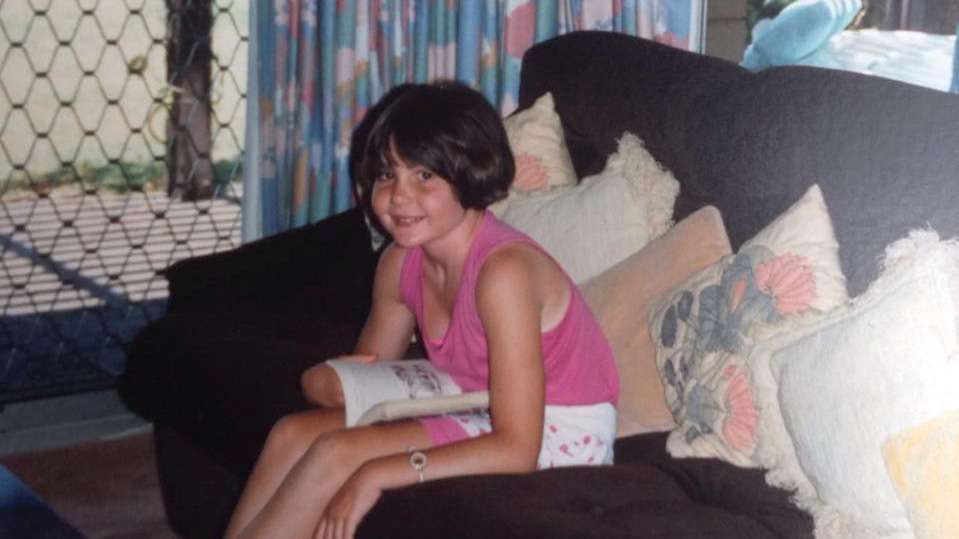The Sapling editor Sarah Forster writes about her childhood spent between New Zealand and Australia, the books she read as a result, and explains why we’re making room for the Aussies on this site.

I lived, from the ages two to six then eight to 11, in a small town called Collie in Western Australia. The rest of the time I was in New Zealand. To a certain extent, the two countries were similar – most children’s literature came from overseas. It seems everybody here and there was obsessed with The Babysitter’s Club and Sweet Valley High books at the same time.
I read voraciously and endlessly as a kid. If there was a reading challenge at school, I would receive badges for it every week. (My main memory of my time at school in Australia is that we were always being pushed to be better, stronger at whatever it was we were already good at.) While the other kids played basketball and sweated in the heat of the summer, my British friend and I read Narnia under the school’s cool archway.
I became obsessed with the books of Australian author Paul Jennings. I remember reading every book by Jennings that I could get from the Collie Public Library, and begging Mum to get me more. I had Unreal!, Quirky Tales! and Unbearable! – and a subsequent strong fear of crocodiles in outside dunnies.
The grosser the details, the more engrossed I would be. A boy wears a sock for three months straight, and it gets stickier and sweatier; he then uses it to put his enemy to sleep, thereby saving the 200-year-old turtle who is laying eggs on his nearby beach. The breadth of Jennings’ imagination was boundless, and engaged me utterly.
I was submerged in the Australianness of it all. Jennings was unashamedly of Australia. There were no fairies, though there was magic. You couldn’t guarantee a happy ending. I learned to be a ‘little Australian’ from him – how to blend in, when standing out was a recipe for disaster.
There were kids and teachers at one of my schools who never figured me out. I spoke like them but ‘posh’; I was the same as them, but different. And it was the difference that caught in their minds, and this difference that made me dive deep into books.
There are two other extremely Australian books I remember strongly. One was Snugglepot and Cuddlepie by May Gibbs, which my mum bought from the Doubleday Book Club when I was only three or four. There was something about those adorable babies and that familiar landscape that pulled me in and captured me. Mum would try and take it off me, fearing I would tear a page out, but even at three I understood that books were precious.
The other is Seven Little Australians by Ethel Turner. After going through a Little Women phase, I read and re-read Seven Little Australians, becoming obsessed with the lives of this fantastic family. As an only child, I dove into this book as a sister, wishing that I would re-emerge and suddenly be amidst the drama and love and pain caused by siblings. I knew that this was impossible, but these big families always carried me away. It’s no surprise that one of my best friends at school was one of eight siblings: the feeling I always had being greeted as one of her family was just like being in a book.
I think my love of that book inspired my love of frontier fiction, something I occasionally dip back into today. The feeling of being on the edge of discovery inspired a desire to be ‘an explorer’, inevitably ruined by my mum telling me that everything had already been discovered. If I had been a more determined kid I would have proven her wrong.
We moved back to New Zealand for good when I was around 11. But it has only been since having my own kids that I have realised that, of course, there are still wonderful authors working in Australia right now, and that they are (like ours) world class.
The authors and their industry face many of the same issues that their Kiwi counterparts do: Amazon shattering everybody’s cut of the deal, a small (well, medium) population, a reasonably isolated space in the world, social issues such as poverty and racism that continue to be not-so-buried secrets.
These Australian authors and illustrators are worth paying attention to: the fabulous Maxine Beneba Clarke, the glorious Shaun Tan, the enlightening Zana Fraillon, the prolific Morris Gleitzman (who gave one of the best school performances I have ever seen at the 2015 Auckland Writers Festival), and those we’ve featured once a month so far: Amie Kaufman, Sally Rippin and Ursula Dubosarsky. There’s so much to discover right across the ditch. Let us know who we should be including!

Sarah Forster has worked in the New Zealand book industry for 15 years, in roles promoting Aotearoa’s best authors and books. She has a Diploma in Publishing from Whitireia Polytechnic, and a BA (Hons) in History and Philosophy from the University of Otago. She was born in Winton, grew up in Westport, and lives in Wellington. She was a judge of the New Zealand Book Awards for Children and Young Adults in 2017. Her day job is as a Senior Communications Advisor—Content for Te Herenga Waka—Victoria University of Wellington.



